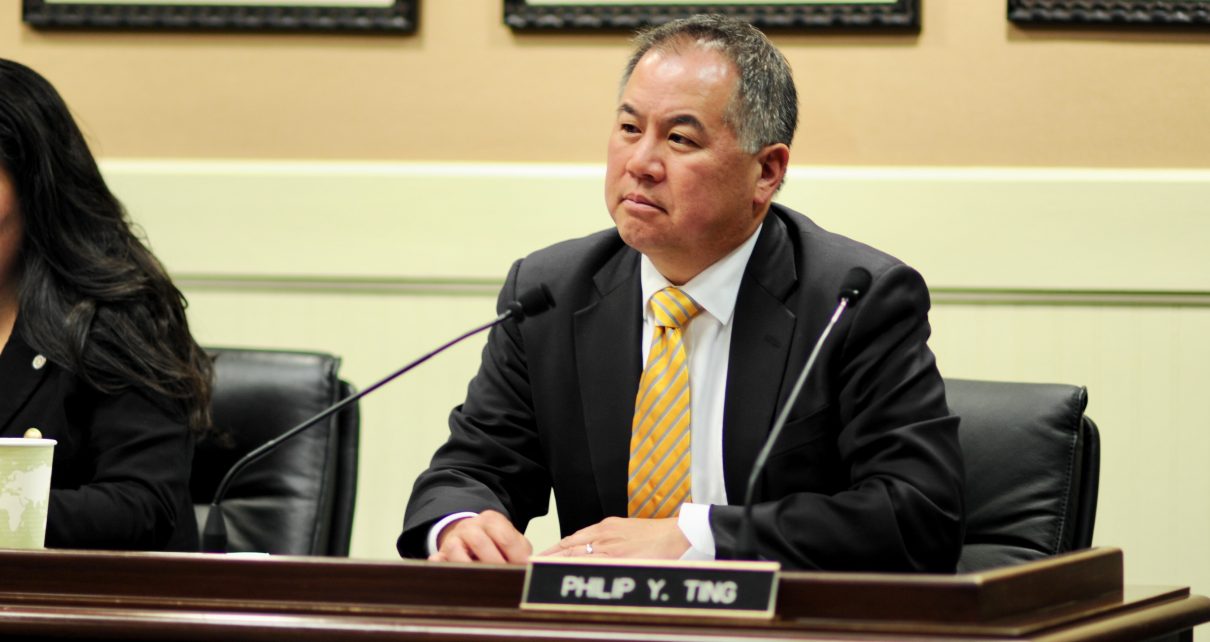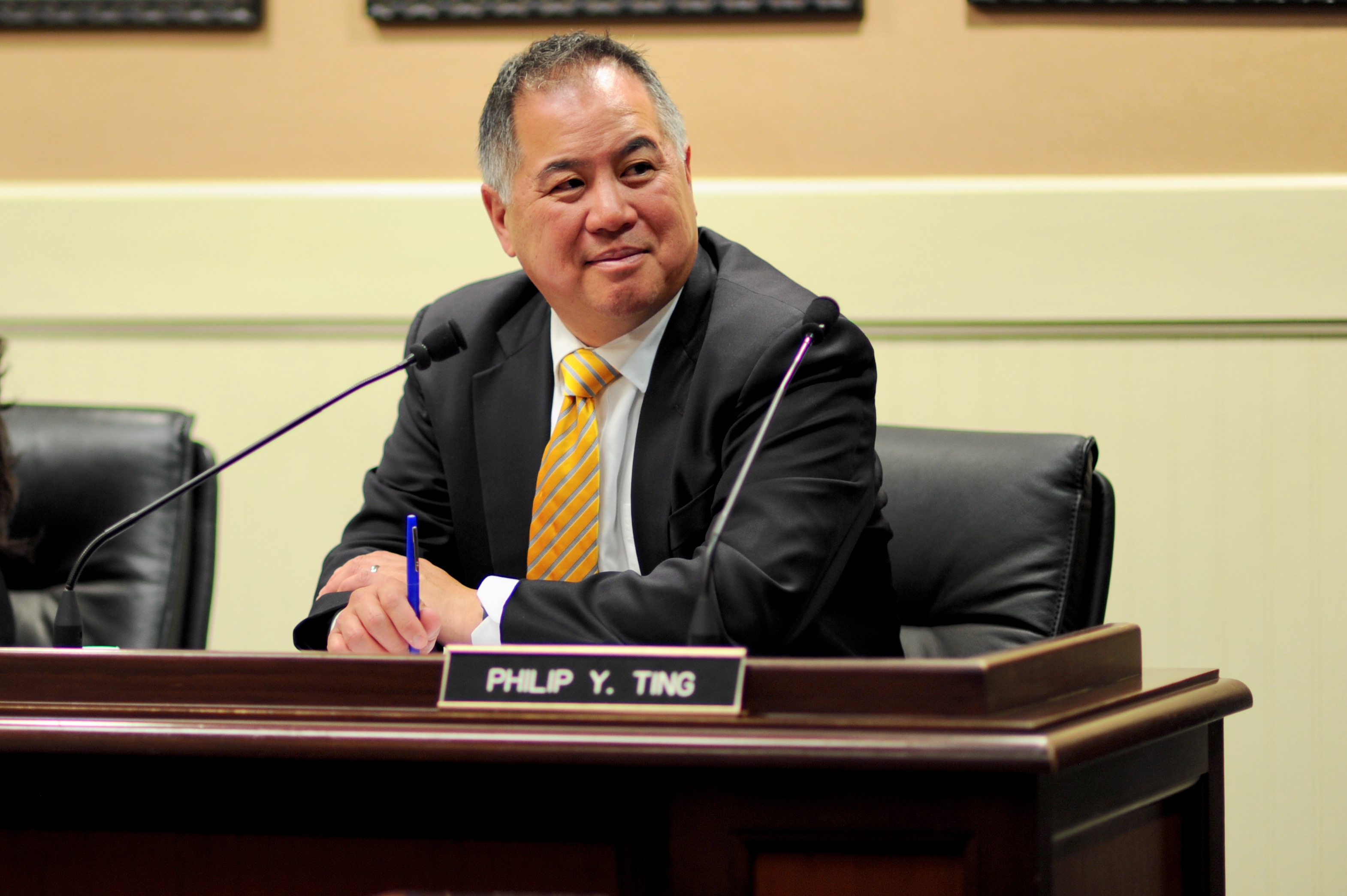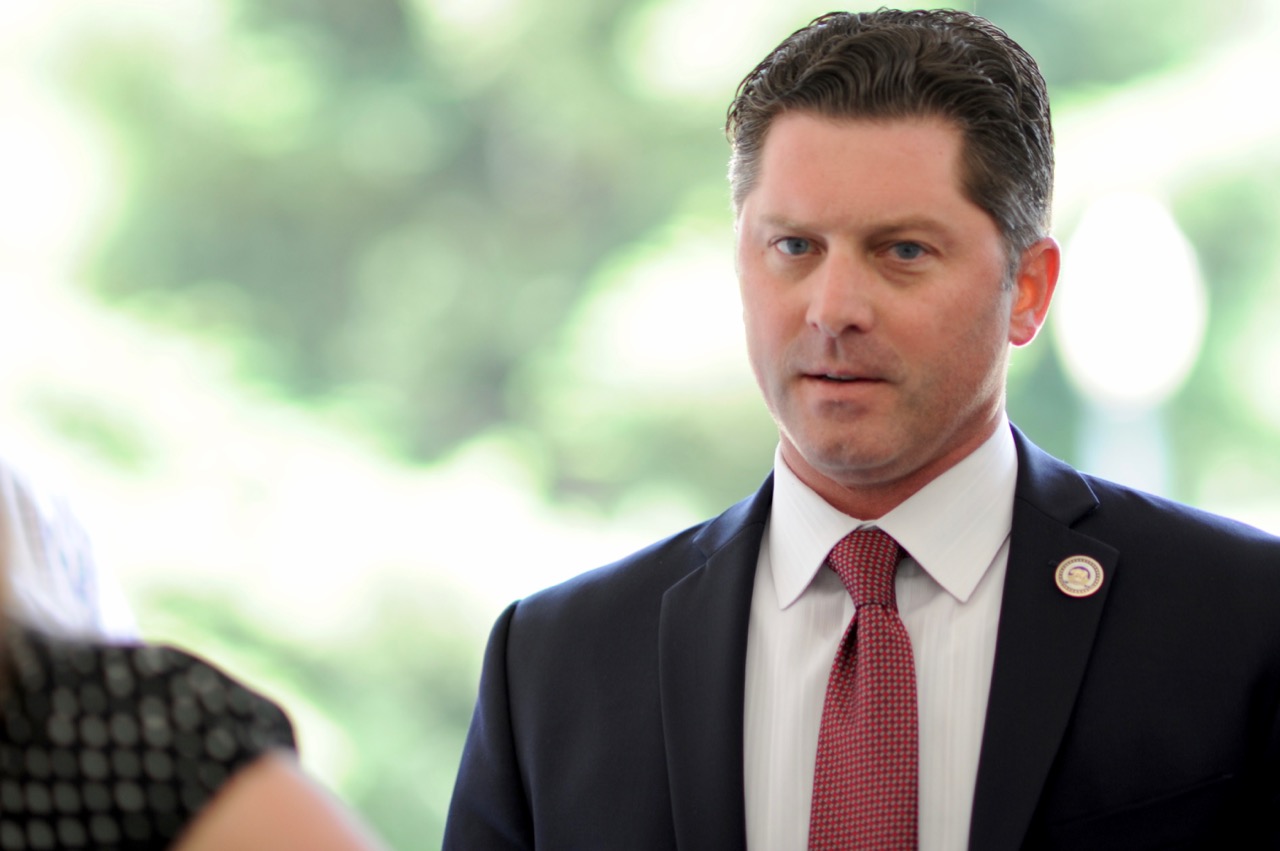
Assemblyman Philip Y. Ting. (Photo: Kevin Sanders for California Globe)
RECAP: AB 1215 Banning Facial Recognition From Police Body Cameras
If passed, the ban would be in effect for three years
By Evan Symon, September 23, 2019 5:09 pm
AB 1215 seeks to ban all biometric surveillance in police body cams.
What is it?
AB 1215 would install a three year ban on using biometrics, such as facial recognition systems, from being used in police body cameras. This would also ban using such technology in data recorded from a normal camera.
In matters of privacy, police can still blur in videos recorded.
The bill follows the lead of Oregon, San Francisco and several other cities and states that have banned biometric systems, as the technology has failed to match suspects and confused traits such as race and gender in several high profile cases.
Who Backed It?
Assemblyman Phil Ting (D-San Francisco) introduced AB 1215. Ting has cited concerns over biometric systems being used as surveillance instead of their intended usage in identifying to whom police are speaking.
“If you install software onto those body cameras, then you run the risk of really destroying that trust,”Assemblyman Ting said recently. “It becomes a tool of surveillance, which was never the goal.”
Ting is joined by groups such as the ACLU in supporting the bill. Those groups also say they back the bill because of surveillance fears.
“AB 1215 is a common-sense bill that rightly concludes that keeping our communities safe doesn’t have to come at the expense of our fundamental freedoms,” said the ACLU in a statement. “We should all be able to safely live our lives without being watched and targeted by the government.”
Law enforcement groups have opposed the ban, saying that the ban gets rid of a vital tool that helps identify suspects, with one group even saying that this could lead to a ban of body cameras altogether in California.
What happened?
AB 1215 split both the Assembly and the Senate largely on party lines, with a few switched votes due to closeness of law enforcement organizations.
Even so, the bill was thoroughly debated, and the votes were close. In the Senate the bill only passed 21-15, while in the Assembly it was 47-21.
Current Status:
Governor Newsom is currently deciding whether to sign or veto the bill. Based on Newsom’s history of curbing what police can or cannot do both as mayor of San Francisco and his short time as Governor, he is widely expected to sign the bill.
Opposition groups:
California Peace Officers Association, California Police Chiefs Association, California State Sheriffs’ Association, CSAC Excess Insurance Authority, Los Angeles County Sheriff Peace Officers’ Association of California, Riverside Sheriffs’ Association
Supporting Groups:
American Civil Liberties Union of California (source), AIDS Legal Referral Panel, Anti Police-Terror Project, API Chaya, Asian Law Alliance, California Attorneys for Criminal Justice, California Civil Liberties Advocacy, California Immigrant Policy Center, California Public Defenders Association, Center for Media Justice, Color of Change, Council on American-Islamic Relations of California, Data for Black Lives Defending Rights and Dissent, Electronic Frontier Foundation, Fight for the Future, Harvey Milk LGBTQ Democratic Club, Indivisible CA, Justice Teams Network, Library Freedom Project, Media Alliance, National Association of Criminal Defense Lawyers, National Center for Lesbian Rights, Oakland Privacy, RAICES San Jose/Silicon Valley NAACP, Secure Justice ,Tor Project, Transgender Law Center, X-Lab.
- Bill to Require Law Enforcement Disclosure if AI Was Used To Help Write Reports - August 7, 2025
- Gov. Newsom Files FOIA Request To ‘Expose True Cost’ Of L.A. Federal Troop Deployment for Anti-ICE Riots - August 6, 2025
- California Redistricting: How Newsom’s Plan Will Demolish Hard Fought GOP Gains - August 6, 2025





Petition: National Ban on Facial Recognition: https://www.banfacialrecognition.com/